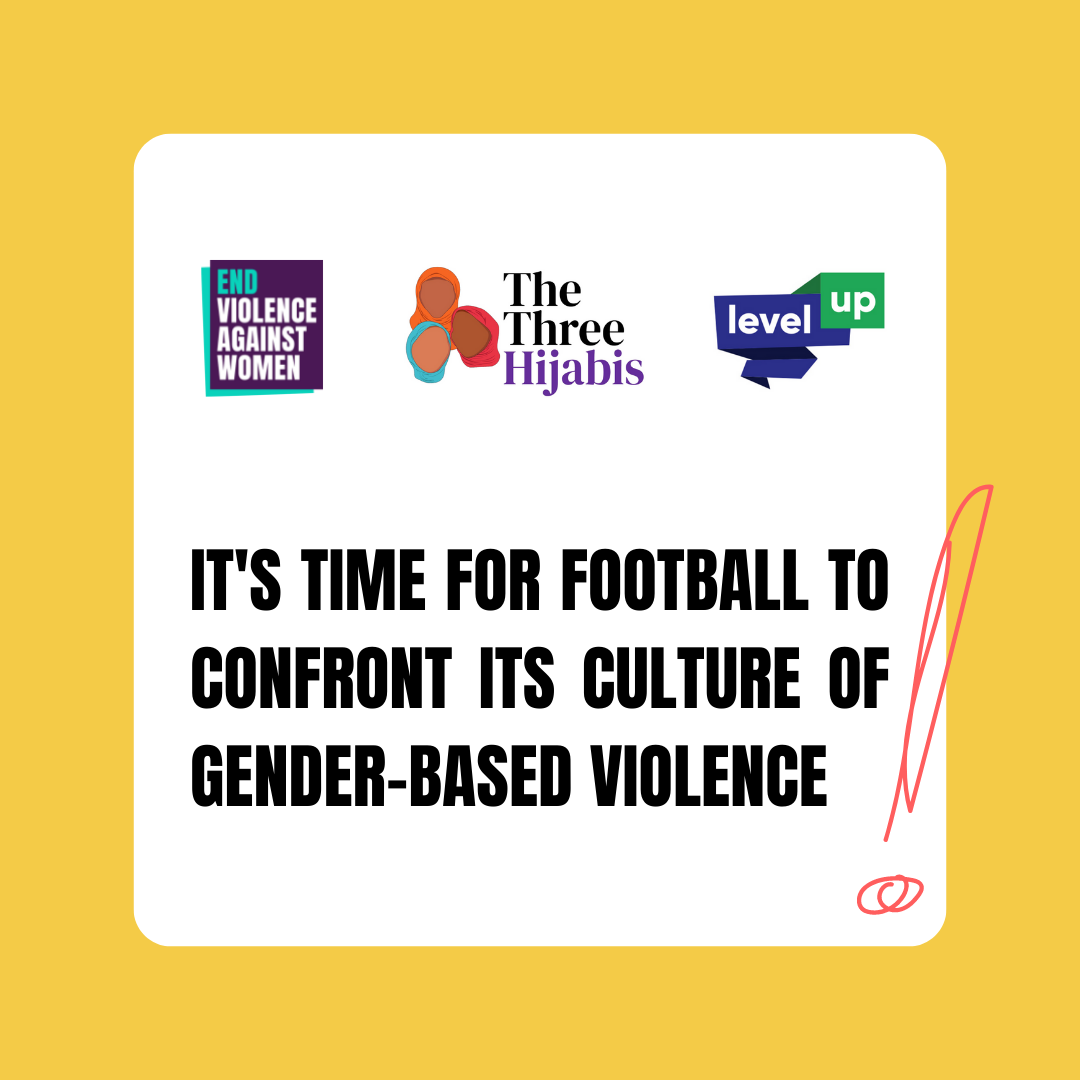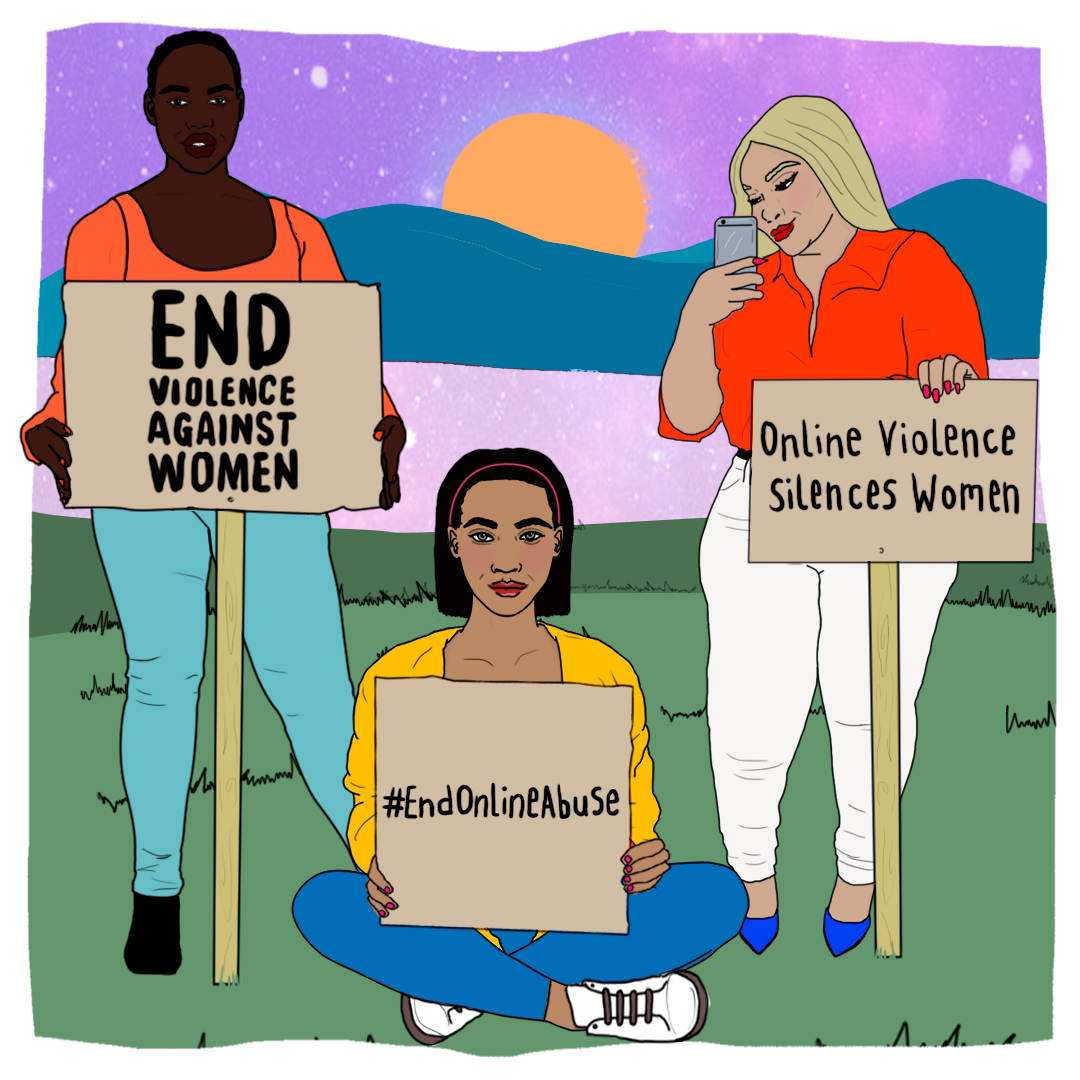
The Bill should guarantee advocacy and protection as well as access to the criminal justice protection
There should be a ‘firewall’ between public services and immigration controls.
The new Commissioner should be a Violence Against Women and Girls Commissioner
The Government’s proposed Domestic Abuse Bill must ensure protection for ALL women at risk of ALL forms of abuse
DOWNLOADS
- EVAW Briefing for Second Reading of the Domestic Abuse Bill
- Joint Recommendations Briefing for the Domestic Abuse Bill
- Government Consultation response and Domestic Abuse Draft Bill
- Our FINAL submission to Government's Domestic Violence & Abuse Bill Consultation
- Women Living in a Hostile Environment
April 2021 Update
The Domestic Abuse Bill is now the Domestic Abuse Act. Throughout the Act’s long journey through Parliament, the government did adopt several necessary amendments, thanks to the tireless campaigning of the violence against women and girls (VAWG) sector. This includes recognising non-fatal strangulation as a new offence, extending coercive control to include post-separation abuse and extending “revenge porn” laws to include partners or ex partners threatening to share intimate images.
But there are still significant gaps in this legislation. Migrant women are among the most vulnerable domestic abuse victims in society, unable to report abuse to the police for fear of detention or deportation, and often left with the unbearable choice of destitution or returning to their abuser, because only 4% of women with no recourse to public funds will be able to access refuge accommodation.
So while the Domestic Abuse Act is a step in the right direction, it is still far from the much needed comprehensive, intersectional framework for addressing violence against women and girls and has missed the mark when it comes to transforming support for the most marginalised victims of abuse. EVAW will continue to fight to ensure they can access equal protection and support.
June 2020 Update
The Public Bill Committee will be hearing evidence on 4th June regarding the Domestic Abuse Bill. We have repeatedly called for this evidence to be given via video link to protect and safeguard the workers and survivors who have been asked to give evidence from the risk of COVID-19.
The timetable for the day can be found here: https://publications.parliament.uk/pa/bills/cbill/58-01/0096/amend/domestic_day_pbc_0603.1-7.html
And you can watch the session live here: https://parliamentlive.tv/Event/Index/ce1095aa-f074-4015-ac58-cf36e0b53af0
April 2020 Update
The Domestic Abuse Bill has its Second Reading in Parliament. Ahead of this Reading, EVAW is asking MPs to recognise the need for the Bill to include a non-discrimination principle in line with the Istanbul Convention. You can read a briefing about the need for a principle of non-discrimination in the Bill here.
EVAW is calling for an amendment to the Bill that would introduce a statutory duty on public authorities to ensure that services and support are accessible to all victims of domestic abuse, without discrimination on any grounds, including migrant status, in accordance with Article 4(3) of the Istanbul Convention. EVAW has developed proposed text for this amendment, working with the EHRC, SafeLives, and Barnardo’s, and in consultation with the specialist VAWG and children’s sectors.
The need for a principle of non-discrimination is one of the recommendations put forward by the Step Up Migrant Women Coalition.
The Step Up Migrant Women Coalition recommendations and EVAW’s call for services and support to be accessible to all survivors without discrimination in accordance with the Istanbul Convention, are also part of the joint key recommendations put forward by the specialist VAWG sector.
For more info on other amendments that EVAW have contributed to and support see here.
March 2020 Update
The Domestic Abuse Bill has returned to Parliament for its First Reading, after it failed to complete its legislative passage when a General Election was called late last year. More info here.
November 2019 Update
The Domestic Abuse Bill has now “fallen” due to the General Election. We hope it will be reintroduced by the next government. See our analysis of party manifestos here.
October 2019 Update
On 16th July 2019 the Bill was presented to parliament and the Government published its’ response to the Cross Party Bill Scrutiny Committee recommendations, largely ignoring the issues which we would say are critically important. Namely failure of the Bill to recognise the gendered nature of Domestic Abuse, the failure to protect and properly fund services and the shameful failure to protect all victims specifically the lack of measures in the Bill to protect migrant women.
In response to the Bill Scrutiny Committee’ recommendations around migrant women the Government said it would “therefore, review the overall response to migrant victims of domestic abuse, taking careful account of evidence provided by stakeholders on this issue.” EVAW along with some of our members have been invited to participate in the ‘review’ however we have found that the it has felt particularly rushed, has lacked transparency and has only had limited engagement with specialist organisations that work with migrant women.
Despite uncertainty created by the prorogation of parliament and Brexit we have continued to work alongside members to influence the Domestic Abuse Bill. We were able to brief politicians ahead of the second reading which took place on 2nd October 2019. We are pleased to see many of the issues raised by us and EVAW members feature prominently in the debate.
There is still a lot to be done as the process is now that the Bill moves to committee stage, followed by report stage and then 3rd reading in the House of Commons at which point it moves to the House of Lords and follows a similar process there.
The Bill was reintroduced in the Queen’s speech on 14th October 2019 which means that for the moment at least it is ‘safe’, however if there is a general election the Bill will fall and have to be reintroduced via the Queens Speech again, which basically resets the process and will be dependent on the will of the new Government.
In the meantime, assuming that this does not happen we and some of our member organisations have been invited to give oral evidence at the committee stage of the process. We will also be submitting written evidence and we will urge members to do the same. The Committee will report on 21st November 2019 so there is a short window for submissions.
EVAW and some of our members are planning to propose amendments to the Bill which we hope will be adopted during the process. EVAW want to ensure that all women can access protection and rights under the Bill, and will support the inclusion of a non-discrimination clause, in line with the requirements of the Istanbul Convention so that services for survivors are in place, properly funded and equally accessible.
EVAW members are also working on amendments which cover a wide range of topics including, addressing the issues created by 28 day bail, improving the proposed domestic abuse prevention order scheme (DAPO) , presumption of the use of special measures in the family courts and creation of a firewall so that migrant women who report abuse are treated as victims regardless of their immigration status.
March 2019
Joint Committee on the Draft Domestic Abuse Bill appointed. The Joint Committee has to complete its deliberations by 17 May 2019. The first oral evidence session took place on 2nd April at which our Public Affairs Manager gave evidence along with representatives from Women’s Aid and Refuge. The Joint Committee has invited views on the draft domestic abuse bill. The deadline for written submissions is 26th April 2019.
January 2019
The government released its consultation response and draft bill ‘Transforming the Response to Domestic Abuse’. Our response is here.
March 2018
On 8 March 2018 the Government launched a consultation on the content of this Bill, which closed on 31 May 2018.
The EVAW Coalition has written a FINAL response to this consultation which we made available to help others write their submissions.
In addition we have published a special briefing on the ‘hostile environment’ immigration policy which means many women are left without support and instead threatened with deportation. We are calling on the Government to put the safety and protection of women experiencing domestic and sexual violence before immigration enforcement.
Women Living in a Hostile Environment shows many women are so fearful of deportation that they do not report crimes of sexual and domestic violence to the police, or seek support to escape the abuse, despite being entitled to protection.
This is despite the Government’s stated aim of ratifying the Istanbul Convention on ending violence against women, which clearly states that all women should be protected from violence, regardless of their immigration status.
At a launch of our briefing hosted by Rupa Huq MP and Chaired by the BBC’s Samira Ahmed, women’s group outline a number of measures the Government must take to protect women for whom the hostile environment policy has been used as a weapon of abuse and control. Recommendations include:
Definition of Domestic Violence: The proposed DVA Bill will create a new statutory definition of domestic violence. This statutory definition must recognise that threats concerning women’s immigration status, and control of documents and application processes, can be part of domestic violence and abuse; and fear of their and their children’s deportation is a key barrier which stops migrant women being able to report and seek protection and justice.
Protection before enforcement: Public authorities, including Police, Crown Prosecution Service and the Courts should receive new specific instruction that they are required to always put protection of victims and pursuit of justice when a victim seeks it ahead of immigration enforcement. This is essential to fulfil Article 59 of the Istanbul Convention which this Bill seeks to ratify. New guidelines and training to be delivered across the public sector to ensure this; and steps should be taken to reassure the public that this is the priority.
Firewall to protect access to services: A ‘firewall’ must be created between critical public services and immigration control policies. All agencies, service providers and practitioners who come into contact with migrant women should put the safety and rights of women ahead of immigration enforcement and ensure that insecure immigration status does not bar women from protection and justice. Women should have access to secure and safe reporting mechanisms.
Extend the Destitute Domestic Violence Concession: Extend the Destitute Domestic Violence Concession (DDVC) to at least six months. Extend the DDVC to ALL survivors of gender-based violence, so that it is not limited to spouses and is not limited to narrowly defined domestic violence in a marital context. Make timely decisions on leave to remain cases where domestic violence or other forms of VAWG are a factor.
Protect and extend specialist services: Government to recognise urgent and already unlawful response to migrant women facing abuse and ensure sustainable funding for specialist BME by and for women’s support and advocacy services in every region, recognising they have highest levels of self referrals and established expertise in supporting and providing advocacy to migrant women. 6. Review future legislation All new immigration law AND procedures, including the upcoming Brexit Immigration Bill, to be reviewed before implementation for possible impacts on women experiencing VAWG.
June 2017
The Queen’s Speech in 2017 promised the Government would bring forward a Domestic Violence and Abuse Bill.
OTHER CAMPAIGNS




